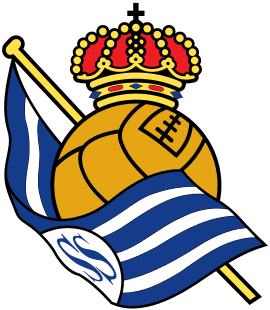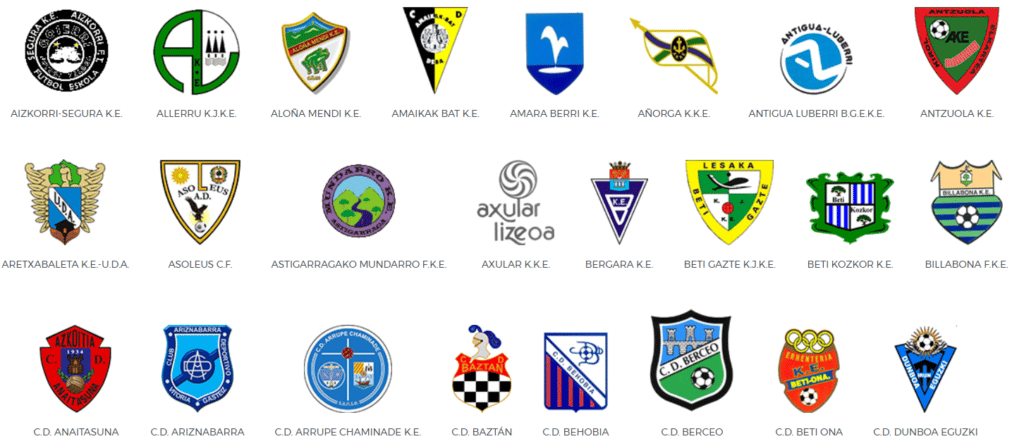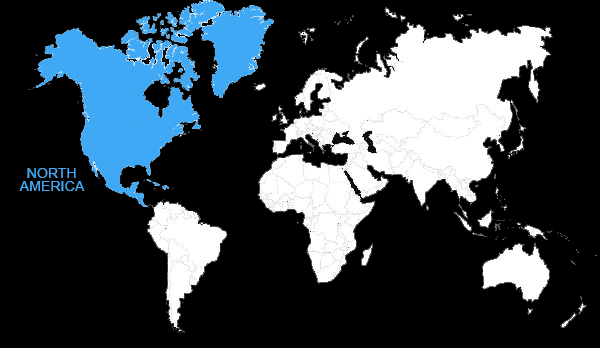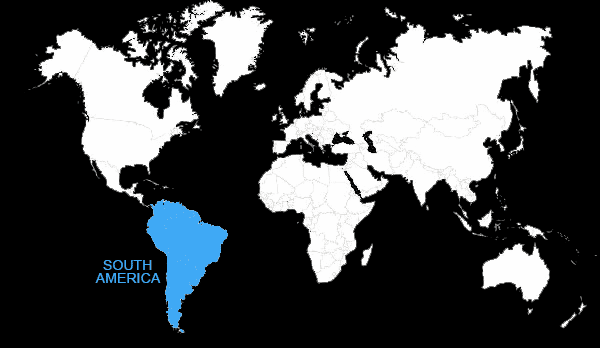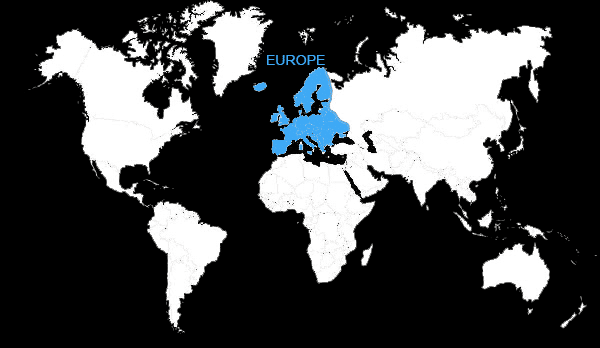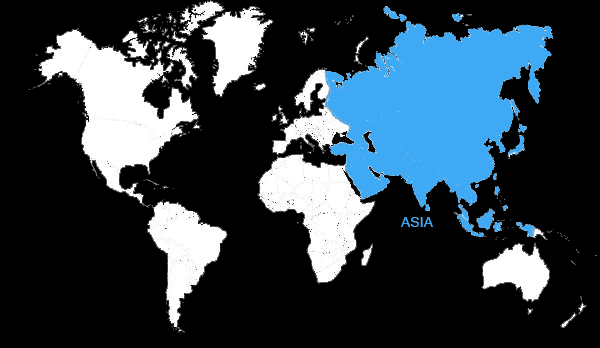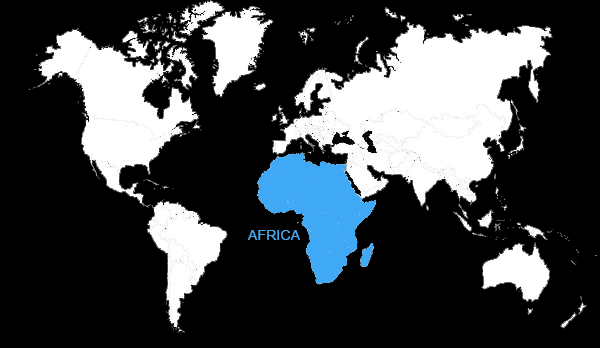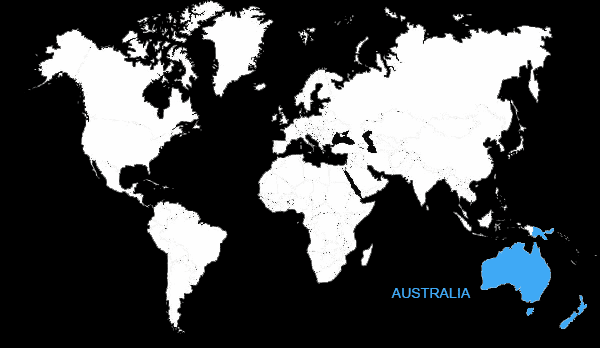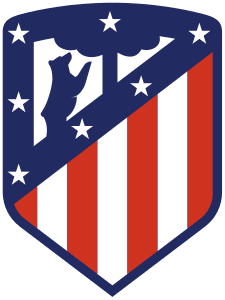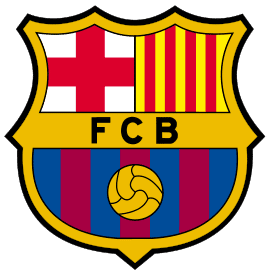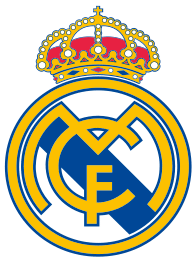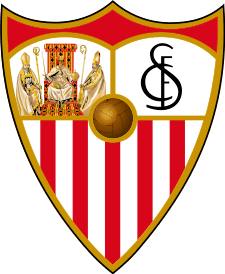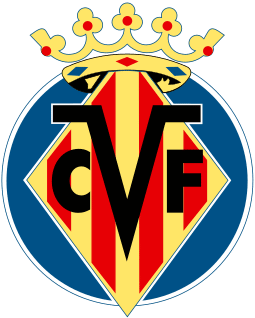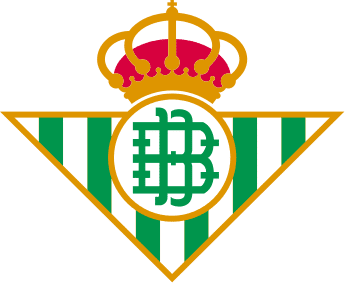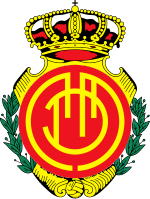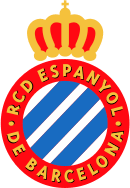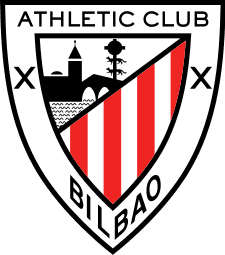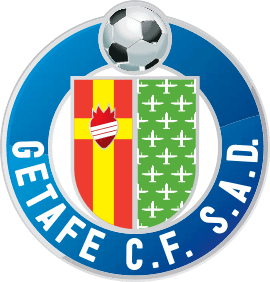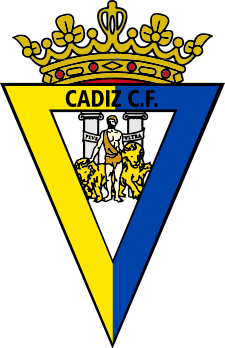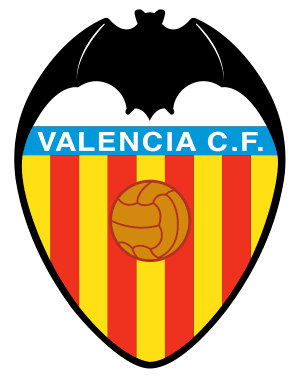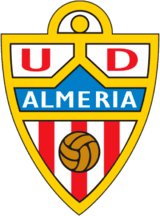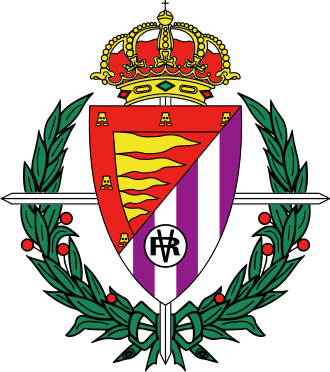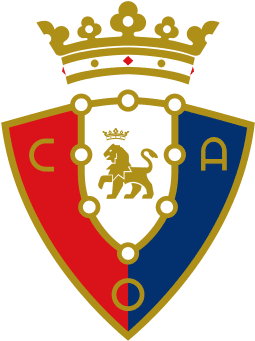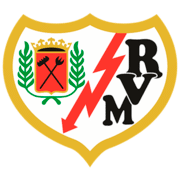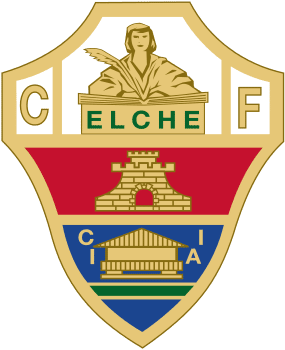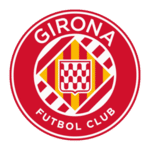Real Sociedad Tryouts & Club Guide: History, Stadium, Players, and More!

Welcome!
Discover the world of soccer with fcscout.com, your go-to scout for club tryout information, club guides, player profiles, in-depth product reviews, and more. We’re dedicated to exploring and revealing the best in each domain, empowering you with knowledge to make informed choices.
Thank you for being here!
Hi, I’m Carlos! A coach, sports enthusiast, and the founder of FCScout.com.
I fell in love with the game at a very young age like many of you. I’ve been following and playing soccer for many years.
Throughout my career, I always enjoyed helping soccer players chase their dreams, which is why I started this website. I wanted to reach a larger audience outside of my local area and fcscout.com was born.
This website is a platform I will be using to update club pages on any tryouts, stadiums, players, tech, and more from clubs around the world. I also create free recruitment profiles for players looking to have that extra competitive edge when reaching out to clubs.
That’s it. That’s my pitch for you to stick around (or browse the site as you please).
This is already too much text for a “see more” drop-down button thing. If you want to reach out to me, head on over to my contact page 🙂

Real Sociedad de Fútbol, more commonly referred to as Real Sociedad, is a Spanish professional sports club in the city of San Sebastián, Basque Country, Spain. The club competes in La Liga, the top flight of Spanish football.
Real Sociedad Youth Development System
The cantera of Spanish professional football club Real Sociedad is the organization’s youth academy, developing players from childhood through to the integration of the best prospects into the adult teams.
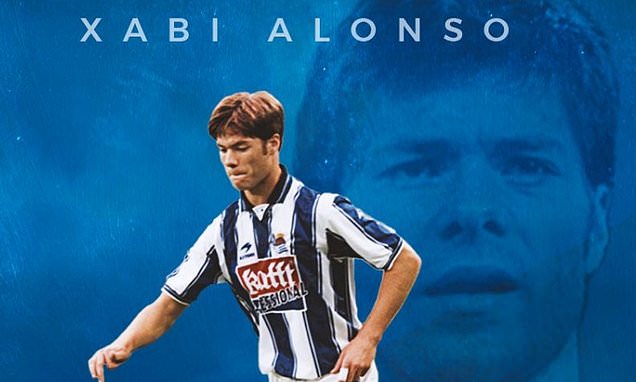
The final category within the youth structure is the Juvenil A under-18/19 team which represents the club in national competition. The successful graduates then usually move to the club’s reserve teams, Real Sociedad C or Real Sociedad B, which are also considered part of the cantera due to being a stage in progression towards the senior team, albeit competing in the adult league system.
The academy is based at the club training complex, Zubieta, which is often the name used informally to refer to the system itself.
Real Sociedad Academy
They are the future of the Real. The lower categories of Real Sociedad are made up of eight teams. A training itinerary that ranges from the children’s category to the Sanse, where they learn to be people, beyond training as footballers who are proud to wear the txuri-urdin shirt.
Real Sociedad B
Real Sociedad de Fútbol B is a Spanish football team based in San Sebastián, in the autonomous community of Basque Country. Founded in 1951, it is the reserve team of Real Sociedad and plays in Segunda División B, holding home games at Campo José Luis Orbegozo holding 2,500 spectators.
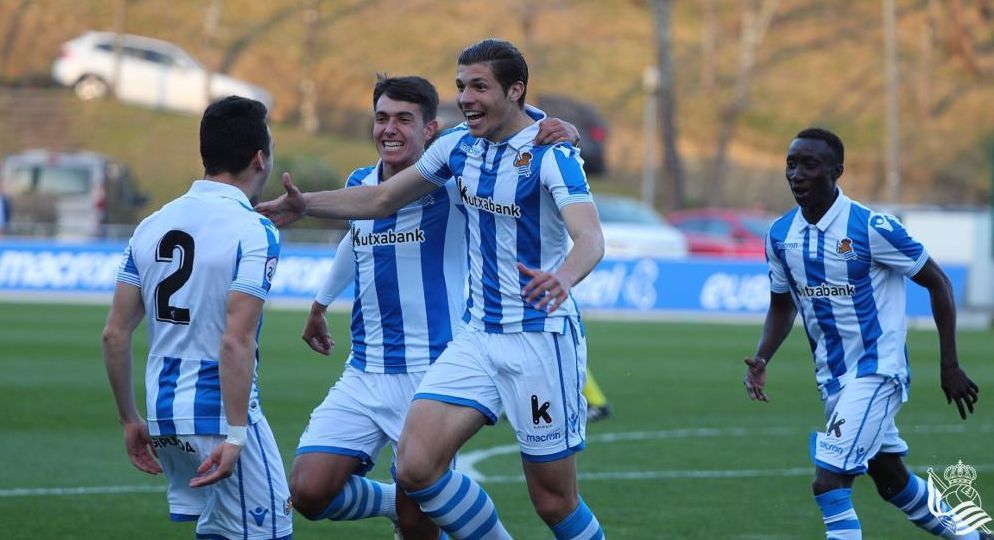
For more information on Real Sociedad B, please click here.
Real Sociedad C
Real Sociedad de Fútbol C is a Spanish football team based in San Sebastián, in the autonomous community of Basque Country. It is the second reserve team of Real Sociedad and plays in Tercera División – Group 4.
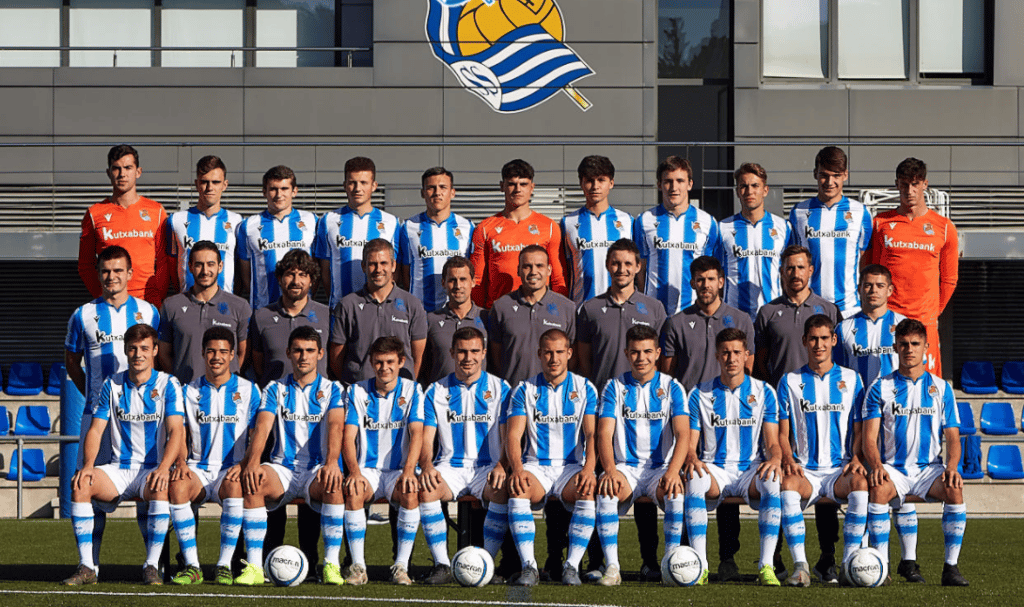
To learn more about Real Sociedad C, please click here.
Real Sociedad Juvenil
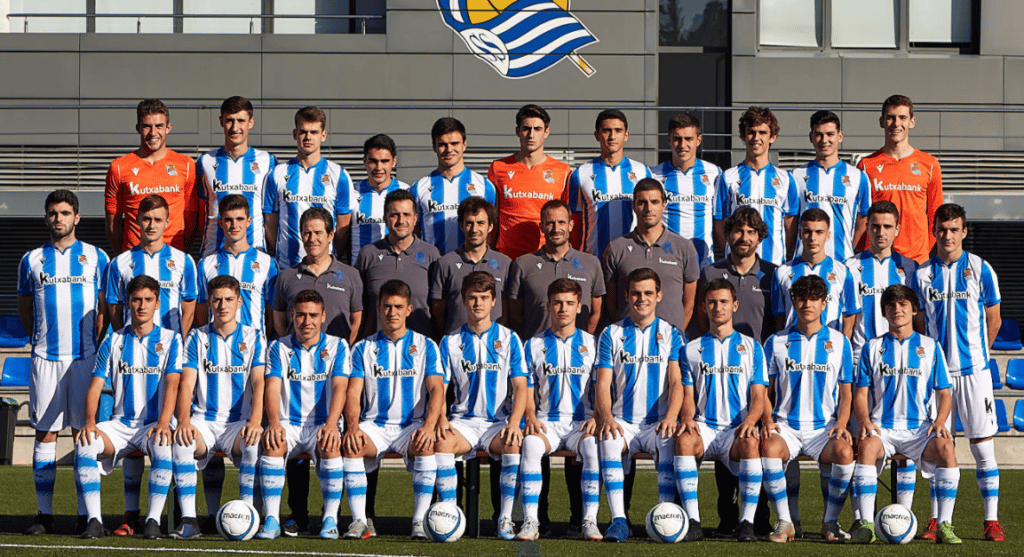
To learn more about Real Sociedad Juvenil, please click here.
Real Sociedad Easo (Juvenil B)
LIGA NACIONAL JUVENIL
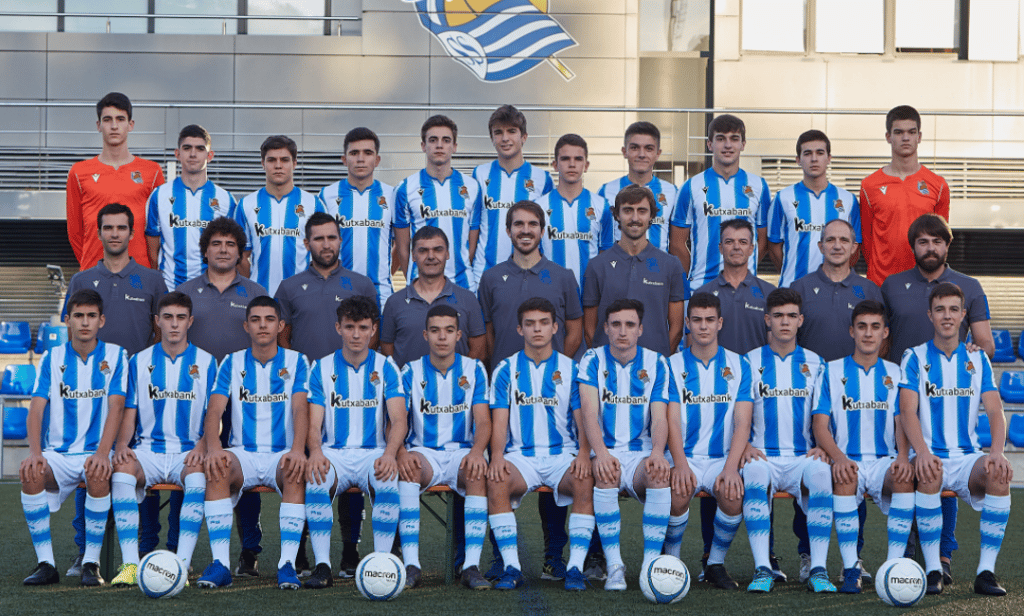
To learn more about Real Sociedad Easo, please click here.
Real Sociedad Cadete
LIGA VASCA CADETE
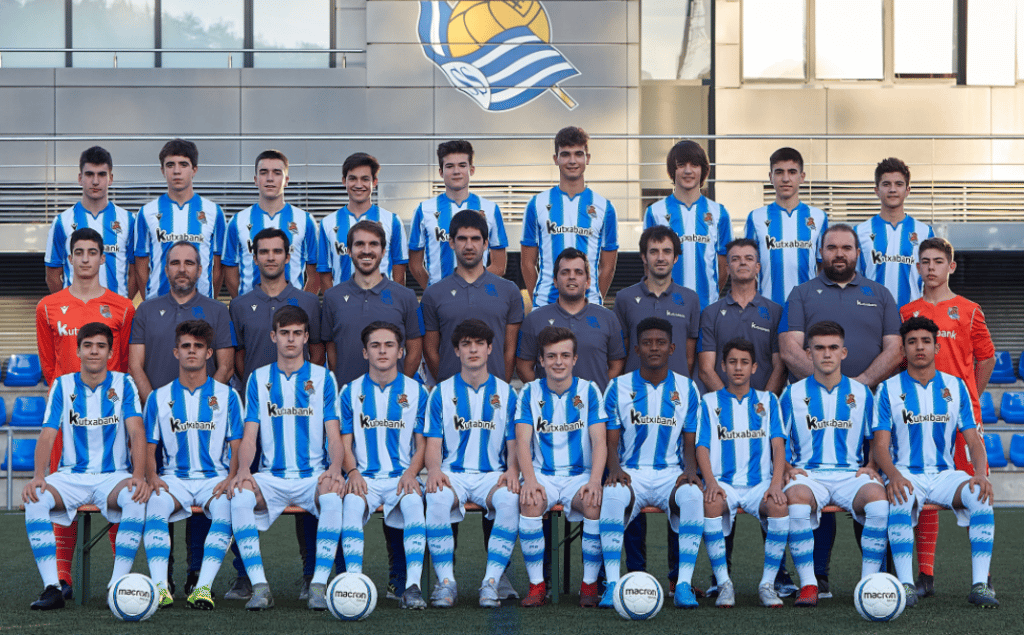
To learn more about Real Sociedad Cadete, please click here.
Real Sociedad Cadete Txiki
LIGA CADETE DE HONOR
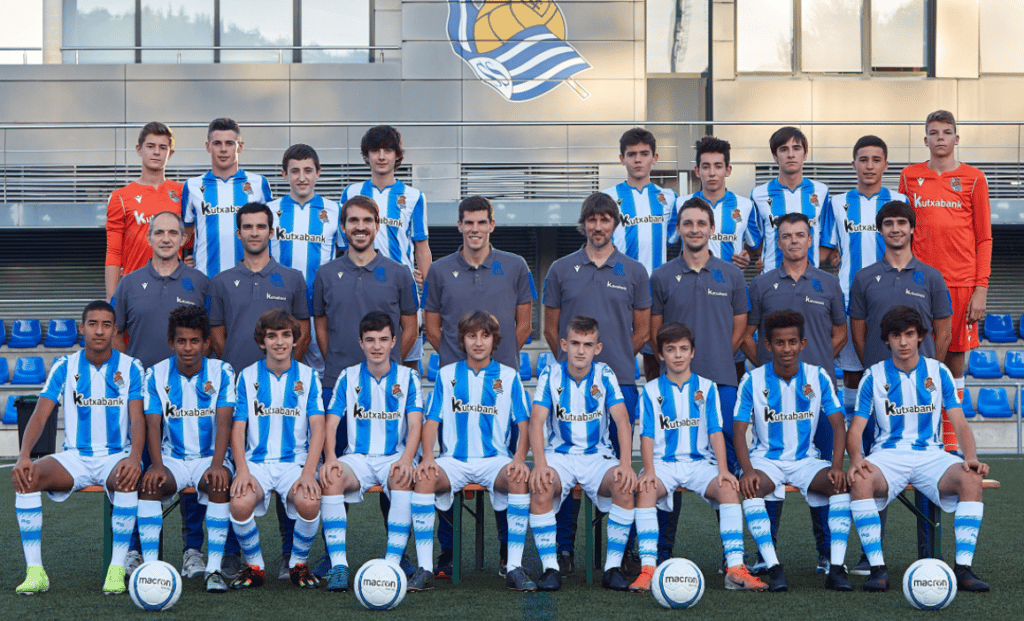
To learn more about Real Sociedad Cadete Txiki, please click here.
Real Sociedad Infantil
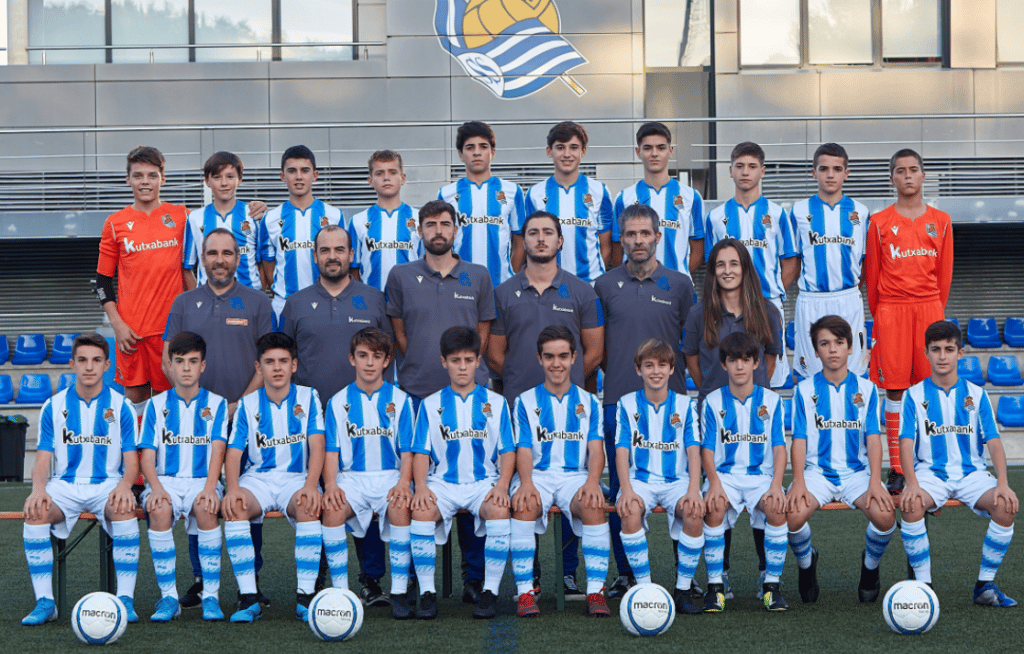
To learn more about Real Sociedad Infantil, please click here.
Real Sociedad Infantil Txiki
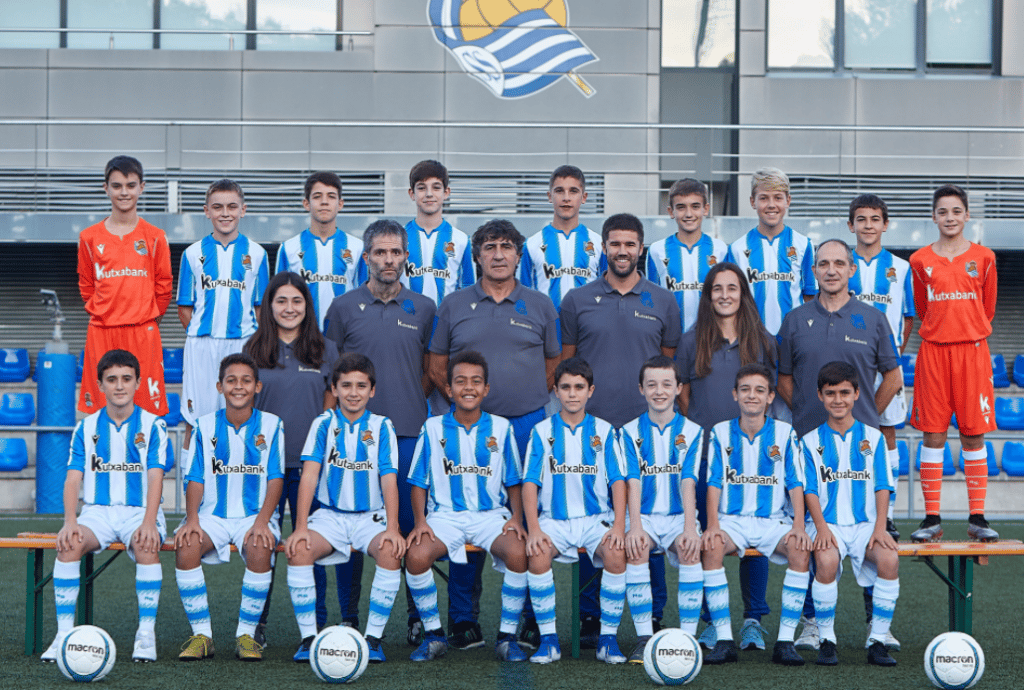
To learn more about Real Sociedad Infantil Txiki, please click here.
GUIPUZCOAN FOOTBALL
The Gipuzkoan clubs work in a network. Grassroots football in our territory, led by Real Sociedad with the support of the Gipuzkoa Provincial Council and the collaboration of the Guipuzcoana Football Federation, is reflected in collaboration agreements signed by 96 clubs with Real: all those from Gipuzkoa plus others 15 settled outside the territory but in very close areas.
For a full list of affiliated clubs, please click here.
EXPLORE MORE CLUBS!
Explore more professional clubs by continent.
Real Sociedad History
Before the club made the decision to sign John Aldridge, a forward from the Republic of Ireland in 1989, it had traditionally followed a strategy (which was very similar to the policy followed by its rival Athletic) of only signing Basque players. Despite the fact that a sizeable portion of its original Basque player roster has remained intact, the club’s roster today also includes non-Basque Spaniards as well as players from other countries.
After the end of the all-Basque era, the club’s youth program has continued to have a great deal of success in producing internationally known players. Some examples of this include World Cup champions Xabi Alonso and Antoine Griezmann. The club has taken part in the UEFA Champions League on two separate occasions. During the 2003–2004 season, the team made it all the way to the round of 16, where they ultimately fell to Lyon.
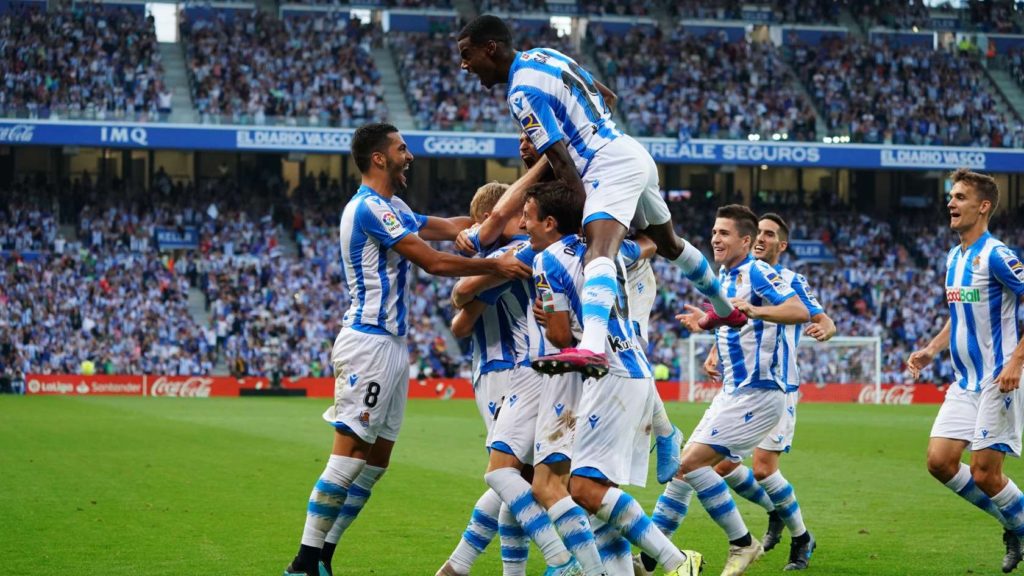
Aside from football, Real Sociedad also fields teams in a variety of other sporting competitions, such as basque pelota, women’s football, track and field, field hockey, and field hockey.
Stadium
Anoeta Stadium is a football stadium that was opened in 1993 in San Sebastián, which is located in the Basque Country of Spain. For reasons related to sponsorship, the stadium is currently known as the Reale Arena.
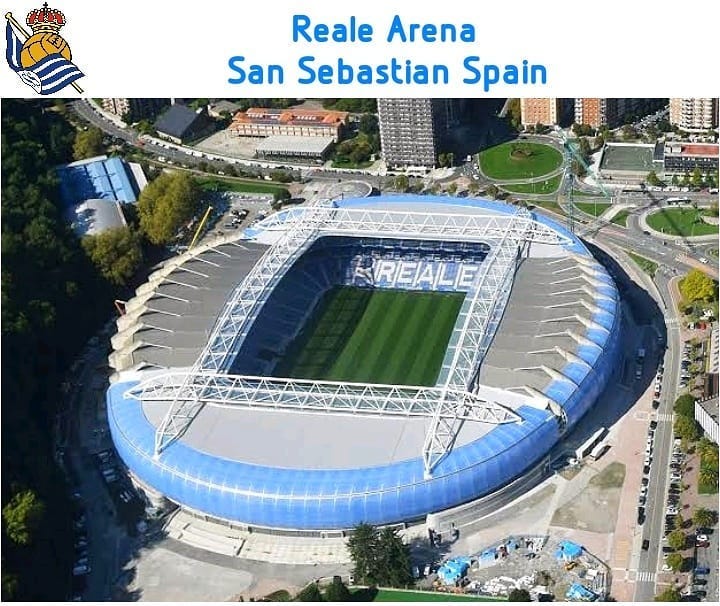
Real Sociedad’s home games in the La Liga are played at the stadium, which is part of the Anoeta Sports Complex. The majority of the games played at the stadium are football matches.
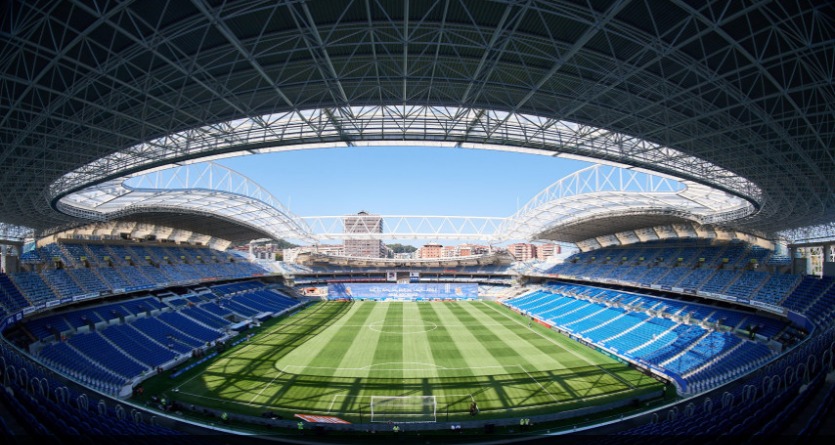
The total seating capacity of the stadium, which was originally 32,000, was restricted to around 26,800 due to redevelopment works. Its capacity for the September 2019 completion of the project has been quoted as 39,500 seats (with the possibility of expanding to 42,300 if it were necessary), making it the 11th-largest stadium in Spain and the 2nd-largest stadium in the Basque Country.
Crest
The bond that Real Sociedad had with King Alfonso XIII is reflected in the club’s logo. The designers chose to represent this with a symbolic element in the form of a crown resting atop a soccer ball.
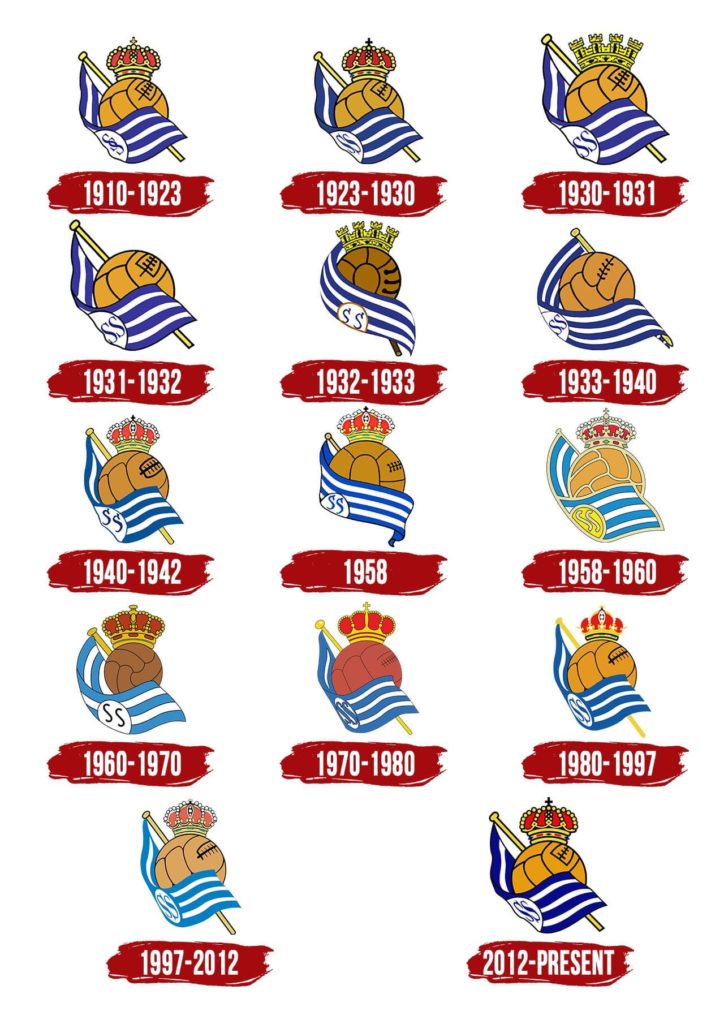
Nearly half of the area is taken up by a flag that is blue and white in color and has horizontal stripes running along it. It has a “SS” on it, which is an abbreviation for San Sebastian, which is the name of the city.
